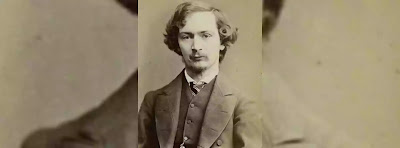Also Read
Algernon Charles Swinburne (1837-1909) had a long life, and his poetical work was in proportion to it. Born in London, of aristocratic lineage, he was educated at Eton and Oxford. He left Oxford (1860) without taking a degree, and for the rest of his life wrote voluminously, if not always judiciously. He was a man of quick attachments and violent antagonisms, and these features of his character did much to vitiate some of his prose criticisms, of which he wrote a large number. A life of dissipation impaired his health, and in his later years, from 1879 onward, he lived in the care of his friend Theodore Watts-Dunton at Putney Hill, where he died.
Atalanta in Calydon (1865), an attempt at an English version of an ancient Greek tragedy, was his first - considerable effort in poetic form, and it attracted notice at once. At a bound the young poet had attained to a style of his own: tuneful and impetuous movement, a cunning metrical craftsmanship, and a mastery of melodious diction. The excess of these virtues was also its bane, leading to diffuseness, breathlessness, and incoherence. Poems and Ballads (1866), a second extraordinary book, was, owing to its choice of unconventional subjects, criticized as being wicked. In it the Swinburmian features already mentioned are revealed in a stronger fashion. Only a few of his later poetical works can be mentioned here: Songs before Sunrise (1871), a collection of poems chiefly in praise of Italian liberty, some of them of great beauty; Erechtheus (1876), a further and less successful effort at Greek tragedy; and Tristram and Other Poems (1882), a narrative of much passion and force, composed in the heroic couplet. Some of his shorter poems were reproduced in two further series of Poems and Ballads in 1878 and 1889, but they are inferior to those of his prime.
Swinburne wrote a large number of plays, of which the most noteworthy are The Queen Mother and Rosamond (1860), with which he began his career as an author; three plays on the subject of Mary Queen of Scots, called Chastelard (1865), Bothwell (1874), and Mary Stuart (1881); Locrine (1887); and The Sisters (1892). The gifts of Swinburne are lyrical rather than dramatic, and his tragedies, like those of most of his contemporaries, are only of literary importance. His blank verse is strongly phrased, and in drama his diffuseness - that desire for mere sound and speed which was his greatest weakness - has little scope.
Throughout his life Swinburne produced a steady stream of critical works, which range over a wide field of literature. In not a few his evaluation of a writer was distorted by violent personal prejudice or approval, as in the cases of Landor and Hazlitt. But for the most part he shows a keen discrimination and a sureness of taste, which combine with his gift for impassioned, almost lyrical, elucidation of the beauties of great works to give the best of his utterances a permanent value. He is probably most successful in his studies of the Elizabethan or Jacobean dramatists or the English lyric poets. Among his most famous books are William Blake (1868), A Study of Shakespeare (1880), and A Study of Ben Jonson (1889).
